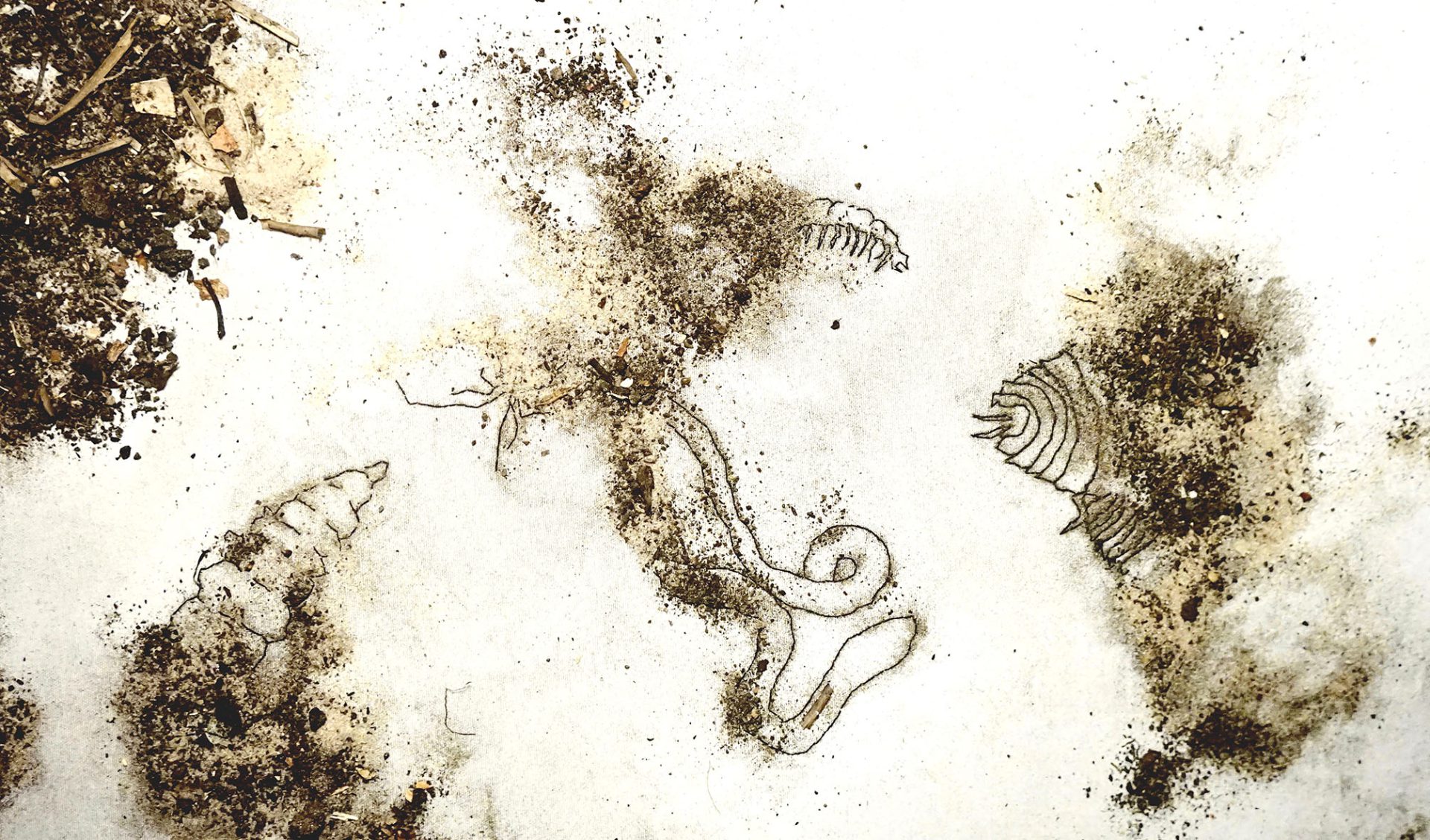Soil
“Today, warnings about soil’s exhaustion and endangered ecology raise concerns marked by fears of gloomy environmental futures, prompting scientists and soil practitioners urgently to develop better ways of taking care of soils. Yet the pace required by ecological soil care could be at odds with the predominant temporal orientation of technoscientific intervention, which is driven by an inherently progressivist, productionist and restless mode of futurity.”
Making time for soil: Technoscientific futurity and the pace of care
Maria Puig de la Bellacasa (2015)
“Taking care for soils” means for us to heal exhausted soils. Exhausted soils are no longer able to regenerate on their own. In urban areas, soils are usually very different from those of the surrounding countryside. They have been severely altered by the removal and application of soil substrates, construction materials, sludge or debris, so this has a significant impact on soil life and properties. Additionally, because we have been told that the rainwater retention basin is a contaminated site, we have had the soils tested for heavy metals and harmful organics. Our goal is to develop collaborative practices to improve activity and diversity in and on the Floating University soils.
On the 22,500 m2 site of the Floating University, there are grown soils, soils on rubble, sealed soils, sludge from Tempelhofer Feld and compost produced on site.
Grown soils
are the result of the weathering of rocks (usually marl and sand) and the activity of soil organisms.
Soils on rubble
have been formed on the remains of past wars by the activity of soil organisms and gardeners at the north and west side of the rainwater retention basin
Sealed soils
are overbuilt soils that do not allow exchange with the subsoil. Sometime in the 1970s or 1980s, the foundation of the rainwater retention basin was asphalted
Sludge from the Tempelhofer Feld
is washed from the airport building into the rainwater retention basin, where it accumulates and is regularly removed
Compost
is produced at the Floating University using the biological hot composting process from kitchen and garden residues generated at the site
POLLUTANT ANALYSIS AND EVALUATION
The pollutant concentrations of the soils on the Floating University site are below the limits applicable in Germany. Only the lead content of the sludge washed up from the Tempelhof airport building is above the limits for children’s play areas and crops.
However, the content of polycyclic aromatic hydrocarbons (PAHs) in the sludge and in the soil of the surrounding gardens is high. These hazardous organic compounds are difficult to degrade and can accumulate in bodies and soils.
The analysis results in detail > WEB page
Non-biodegradable organic compounds and heavy metals are particularly dangerous to soil-dwelling animals and humans. They can be absorbed by direct contact and some of them are toxic for reproduction or cancer-causing. No limit values can be set for effects that occur only after decades through accumulation in bodies and soils.
The pollutant contents of the compost produced from kitchen scraps are far below those of the surrounding soils.
OPEN SOIL LAB
Open Soil Labs are facilities open to all, allowing participants to spatially experience the soil and to get a holistic picture of the coexistence of different living beings. DIE BODEN SCHAFFT built the first Open Soil Lab with the help of the Postcode Lottery for the Floating University. Using microscopes, cameras and simple analysis methods, soil activity and diversity can be measured and experienced for yourself. Interested individuals and groups can sign up for this at www.die-boden-schafft.de .
Text: Martina Kolarek is a soil scientist and artist, founder of DIE BODEN SCHAFFT and member of the Floating e.V.
Life in earth
“Life in Earth” accompanies organisms living in the Floating hot compost transforming waste into fertile earth. This teaser was concepted and produced by Martina Kolarek and Lorène Blanche Goesele with the support of the OPEN SOIL LAB at Floating University (Berlin, 2021).


